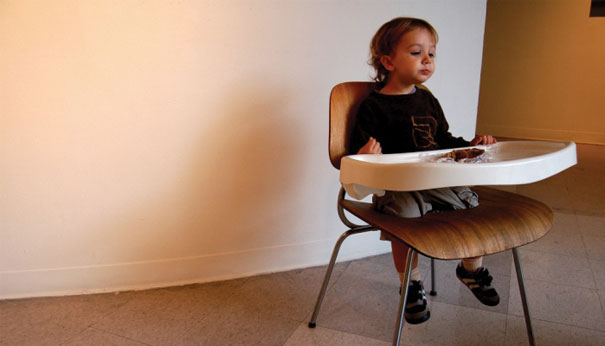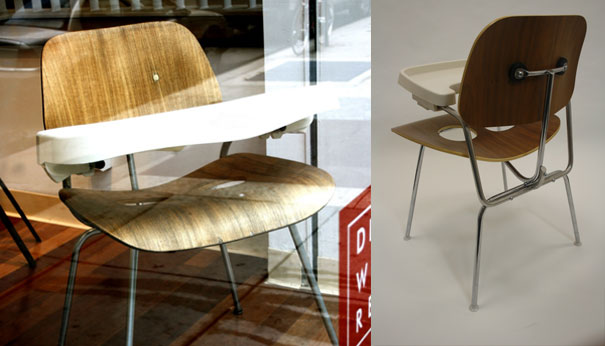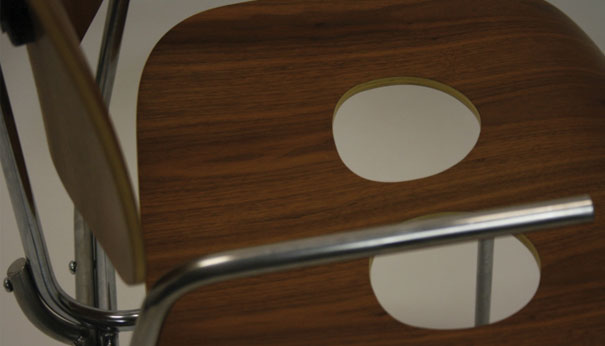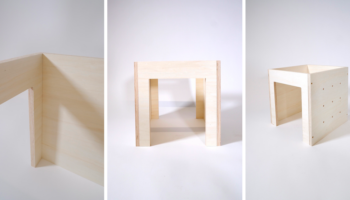The Six-Sided Collaboration Behind “Eames Hack”
Perhaps the world’s foremost and certainly most original “re-purposer,” philosopher-artist-cultural icon Marcel Duchamp would certainly have enjoyed “Eames Hack.” The creator of such beautiful and shocking creations as “Nude Descending a Staircase,” “The Large Glass,” and (most especially) “Fountain,” must have been a palpable influence for Peet’s re-contextualization of classic Eames.
“Eames Hack.” Designed by Jared Delorenzo, Tim Peet, Alexandra Temple Powell, Tom Reynolds, Alie Thomer, and Andrew McCandlish.
The collaborative spirit behind the concept would doubtless have gratified Duchamp as well. Conceived during a three day charette in the Department of Industrial Design at The University of the Arts in Philadelphia, Eames Hack is the cleverly realized result of the intersection of six like-minded minds: Jared Delorenzo, Tim Peet, Alexandra Temple Powell, Tom Reynolds, Alie Thomer, and Andrew McCandlish.
But back to Duchamp. If you don't recall "Fountain," it basically consists of displaying a men's urinal as if it were art, complete with an evocative and ironic name. I'd say that Calling a urinal a fountain vanquishes the first of the Eames Hack Team's re-purposings on the shock quotient, but not by much. The collaborative sextet says their riffs on Eames "are about breaking the status surrounding high design objects. Through physically invasive alterations, these once iconic, elite forms are liberated from their old, restrained image."
Liberated by leaps and bounds, I'd say. In version 1, the distinctive bent wood and subtly curved lines of LCW is re-born with the addition (via removal) of a pair of toddler-leg-sized holes and a plastic tray. Just so, Voila!, and Eames magically serves an.. ahem... younger crowd. Baby was never so stylish. In version 2, the original colorful Eames molded plastic seat is swapped out for the decidedly less attractive but-in this particular usage-more functional molded plastic of a seat for the loo.
Some might argue that the re-workings are somewhat disrespectful. To the contrary, I see them as merely playing around with our expectations and devising new kinds of utility for what has become a rarefied design. The Eames Team describes Eames Hack as "not a critique of the Eames, but rather a fulfillment of their original ideals." In regards to the modern era's original aim of bringing good design to the masses, I'd say they've got it just about right.
Via Coroflot.
**Article revised July 16, 2010 to reflect collaboration.








Leave a Reply